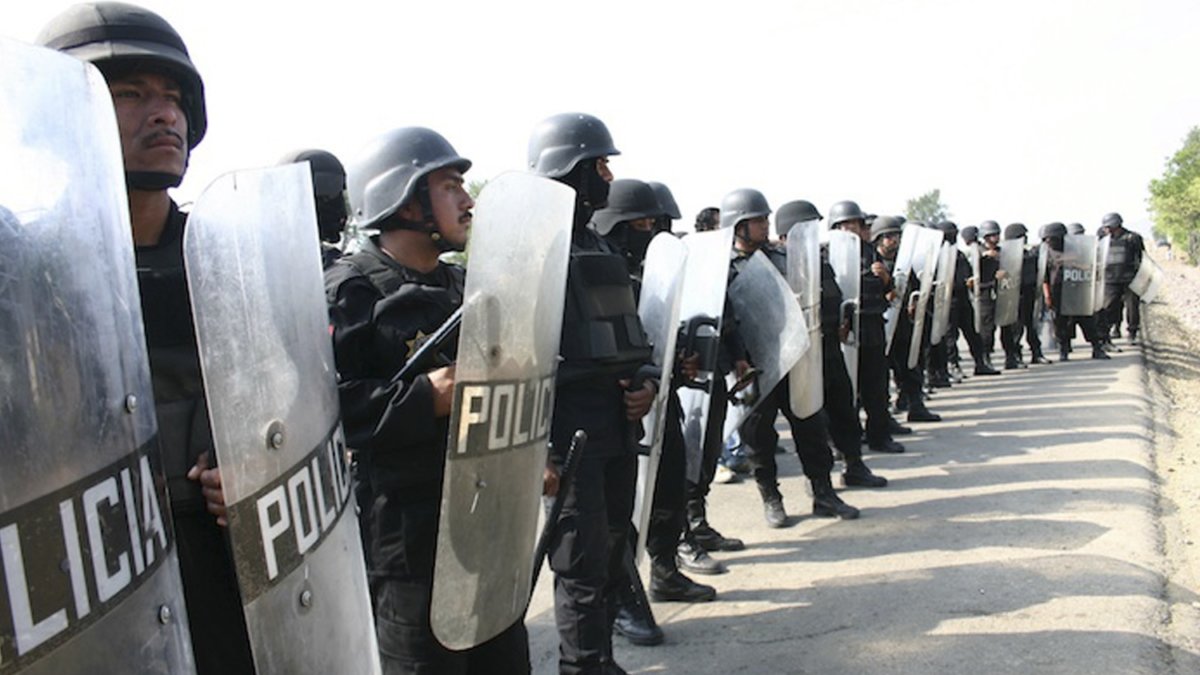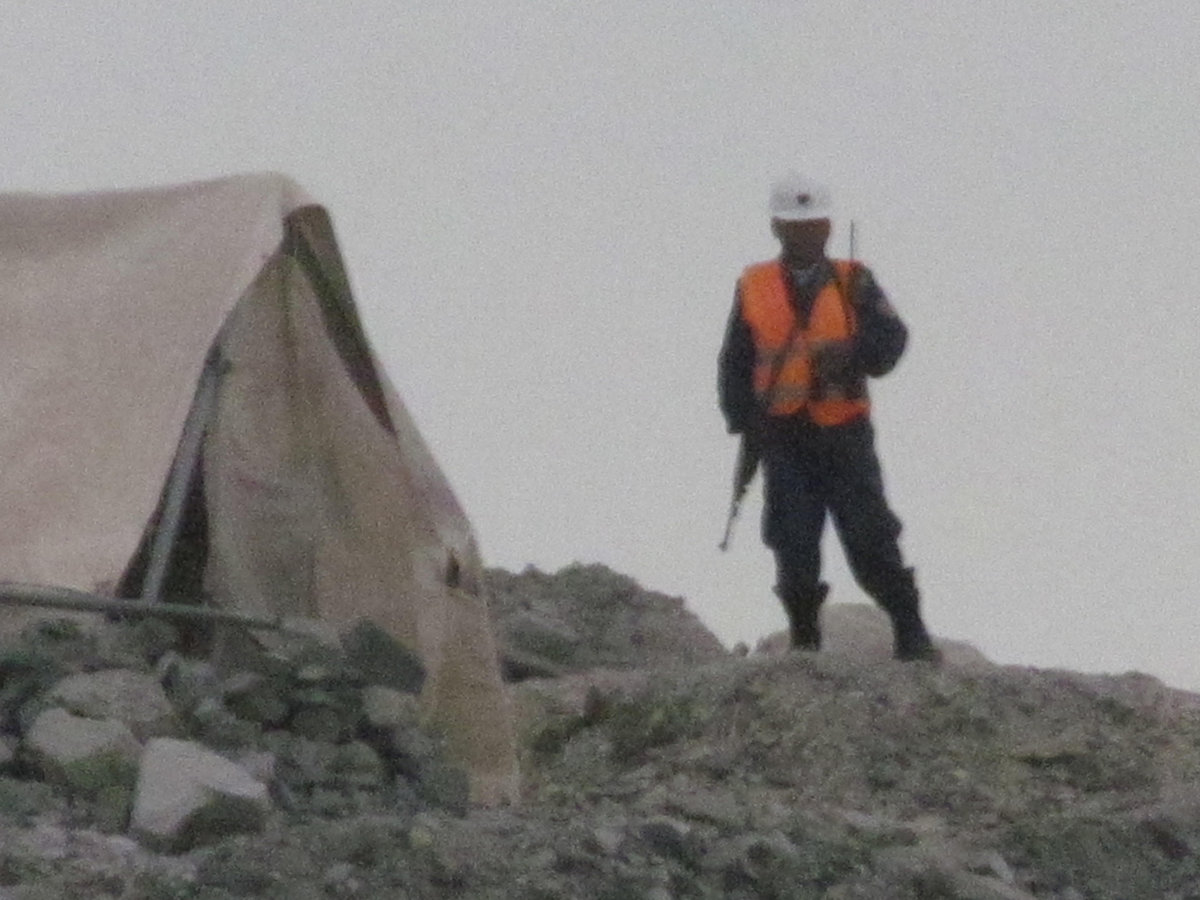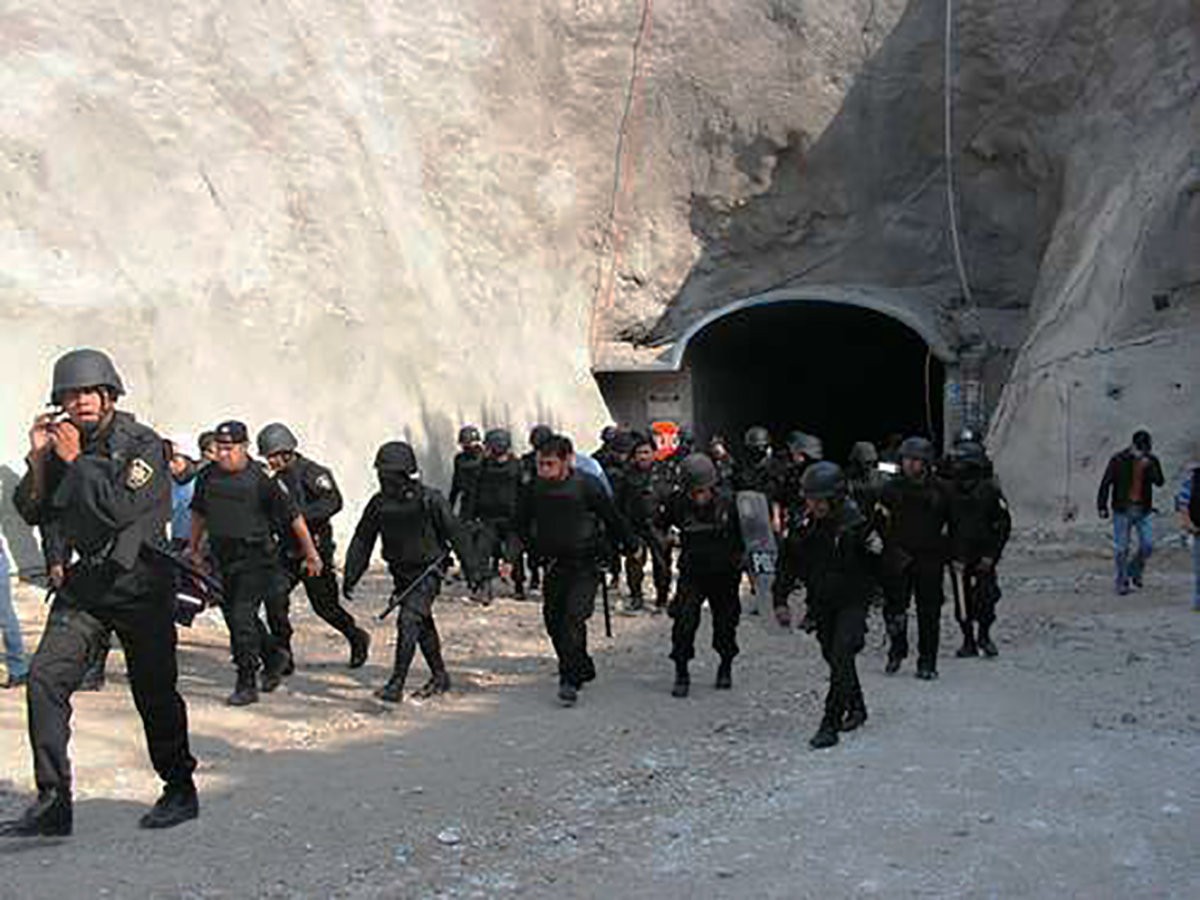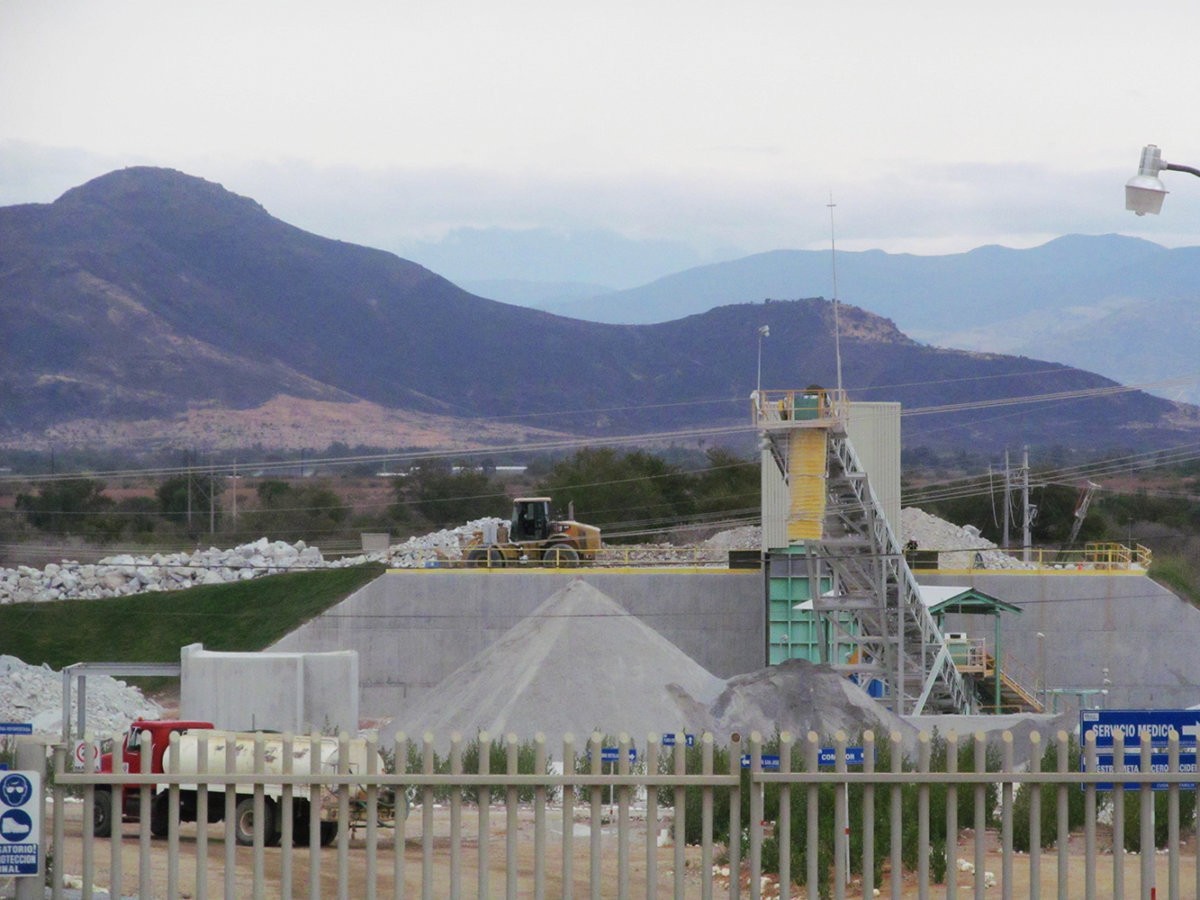Filed under: Analysis, Environment, Land, Mexico, Repression, Southern Mexico

The following translation of an article by Daniel Arellano Chávez from Regeneración Radio looks at the legacy of state repression that occurred ten years ago against the anti-mining resistance of San José del Progreso, Oaxaca.
“It was 9 a.m., we did not open the curtains or windows of the house because they were already firing tear gas. The helicopters were circling low; only briefly did we leave the house to see what was going on. We saw the people of my village running along the streets as the Federales arrived,” those, who at the time were six-year-old kids, remember. “We heard sirens, a lot of noise, fireworks, shouting, vehicles racing along the streets”.
The 3,500 combined troops of Federal and State Police came with military boots, bulletproof vests, clubs, shields, grenade launchers for tear gas, pistols and rifles as they descended upon the Valley of Ocotlán, Oaxaca on May 6, 2009, and occupied the territory of the municipality of San José del Progreso. This also meant handing over the gold and silver, which can be found in the Valley of Ocotlán to the Canadian mining company Fortuna Silver Mines for the next 10 years.

“They hid us children together in a room to make sure we were safe, while we heard the helicopter blades over the house. It was circling so low the draft hit us and we saw the trees and plants twisting under the flying helicopter”.
At the beginning of 2009, concerns among the inhabitants increased, as they received no information on the dimensions of the mining project. Therefore, they decided to retake their land and demand the withdrawal of the personnel of the Canadian mining company. On May 6, 2009, the federal government of Felipe Calderon and the government of the state of Oaxaca, headed by Ulises Ruiz, ordered an operation to evict the community’s protest camp and state forces took position within the mining compound.
This represented an operation to hand over the silver and gold mines to Fortuna Silver Mines, which in Mexico operates under the name of Minera Cuzcatlán. A local resident remembers, “We were never informed that the company was going to establish itself in this area, even less were we told about the risks and consequences this would bring, they violated our rights by using police force.”

The operation was led by the commissioner of the Federal Police, Armando Cabrera Vásquez, and the Commissioner of the State Police, Jorge Alberto Quezadas, who declared that the action was undertaken in order to reestablish the rule of law, since “all access routes to San José del Progreso had been blocked.”
The Valley of Ocotlán was under siege, the communities attacked and 23 individuals detained. Testimonies of residents from the region indicated that since 2007, there had been rumors that exploration was occurring in the old mine of San José del Progreso, but this wasn’t considered alarming. At the same time, local and federal government institutions were pushing ahead in their attempts to convince the population to accept the Program for the Certification of Ejido and Land Ownership (PROCEDE) to allow the mining company to purchase individual plots of land on their terms, as they sought to acquire the land necessary for the mining activities.
10 years later

The mining company continues to extract earth and rocks from the tunnels. According to its reports. it crushes 3,000 tons of earth per day. In 2017, its income from silver and gold amounted to about 200 million USD. In October 2018, residents of Magdalena Ocotlán were alerted to the leakage of mining waste from the tailings dam and the potential ecological, environmental and health consequences for the people living in the area surrounding the contaminated river.
The grey-colored water of the Coyote River raised alarm among the residents. The water pollution remains. In the seven months since the leakage, there has been no clear solution offered by officials media or institutional mechanisms. The results of the soil and water examinations undertaken after the spill have not been revealed.
“Now we can’t hear the singing of the birds; instead, we are woken by the sound of the machines digging up mother earth and the mills crushing the rocks. The air no longer has a smell of humid soil, now there is an odor of sulfur and we think about the life and death the mine has brought. Since 2009, the Canadian company has taken the life of compañeros, destroyed nature. Everything was normal, but now nature is calling out for us to defend the water, to defend the land,” says a woman from the Valley of Ocotlán.





